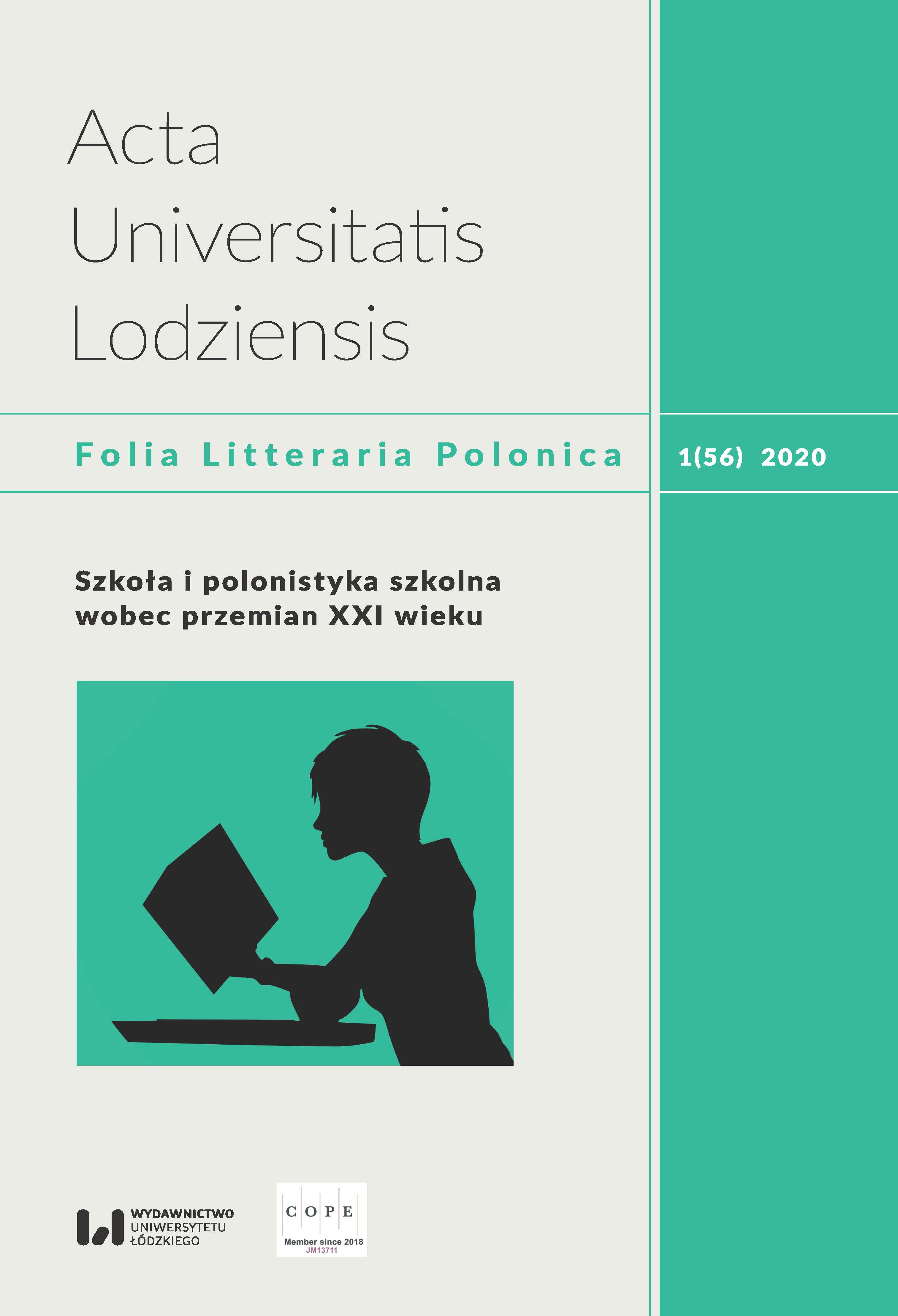Teaching the learners with a migrant background – teachers’ perspectives
DOI:
https://doi.org/10.18778/1505-9057.56.04Keywords:
teacher needs, teaching migrants, teacher educationAbstract
As a result of the growing number of migrants in Poland, schools accept increasing numbers of learners with a migrant background (immigrants and reimmigrants), and they are not always able to successfully help the newcomers in their integration. Therefore, it is necessary to undertake specific support activities. Related shortcomings result in many school failures among many migrants, their dropping out of schools and as a result gaining little if any qualifications. At the same time, the researchers indicated the role of teachers in the education of children with a migrant background. The level of their training and the quality of the support they can offer determines the success or lack thereof of their pupils.
In the article the researchers discussed a study (Stage 2 in particular) the purpose of which was to diagnose and analyse the needs of the education community in terms of migrant education and integration. The following question was the starting point: What do schools need to be able to better teach and integrate learners with a migrant background? The study of needs organised as a focus group gathered teachers teaching pupils with a migrant background with various levels of training, and a headmaster of a school attended by migrants. The analysis of the collected material indicated three areas where teachers need particular support: systemic organisation of accepting and educating learners with a migrant background, access to materials, and the ability to participate in additional training courses and acquire new competences.
Downloads
References
August Diane, Shanahan Timothy, Developing Literacy in Second-Language Learners, Lawrence Erlbaum Associates and the Center for Applied Linguistics, Washington DC 2006.
Google Scholar
August Diane, Shanahan Timothy, Developing Reading and Writing in Second-Language Learners, Routledge 2008.
Google Scholar
DOI: https://doi.org/10.4324/9780203937600
Badowska Mariola, “Różnorodność kulturowa uczniów wyzwaniem dla współczesnej szkoły”, Kultura–Społeczeństwo–Edukacja 2015, issue 1 (7), pp. 179–192.
Google Scholar
DOI: https://doi.org/10.14746/kse.2015.1.12
Bilingual and multilingual education, García Ofelia, Lin Angel, May Stephen (eds.), Springer International Publishing 2017.
Google Scholar
Błeszyńska Krystyna M., Dzieci obcokrajowców w polskich placówkach oświatowych − perspektywa szkoły. Raport z badań, Ośrodek Rozwoju Edukacji, Warsaw 2009.
Google Scholar
Gawlicz Katarzyna, Rudnicki Paweł, Starnawski Marcin. Dyskryminacja w szkole – obecność nieusprawiedliwiona. O budowaniu edukacji antydyskryminacyjnej w systemie edukacji formalnej w Polsce. Raport z badań. Towarzystwo Edukacji Antydyskryminacyjnej, Warsaw 2015.
Google Scholar
Jennings F., Collins Brian A., Preparing All Teachers to Meet the Needs of English Language Learners. Applying Research to Policy and Practice for Teacher Effectiveness, 2012. https://files.eric.ed.gov/fulltext/ED535608.pdf
Google Scholar
Majcher-Legawiec Urszula, “Prawne aspekty pobytu i nauczania języka polskiego ucznia z doświadczeniem migracyjnym w szkole polskiej”, Annales Universitatis Paedagogicae Cracoviensis. Studia ad Didacticam Litterarum Polonarum et Linguae Polonae. Pertinentia 2016, vol. 7, col. 223, pp. 110‒125.
Google Scholar
Nikitorowicz Jerzy, Kreowanie tożsamości dziecka, Gdańskie Wydawnictwo Psychologiczne, Gdańsk 2005.
Google Scholar
Pakulski Jan, “Zróżnicowanie językowe – wielojęzyczność – języki narodowe. Refleksje z perspektywy europejskiej”, Annales Universitatis Cracoviensis. Studia ad Didacticam Litterarum Polonarum et Linguae Polonae Pertinentia 2017, vol. 8, col. 227, pp. 18–25.
Google Scholar
Pamuła-Behrens Małgorzata, Hennel-Brzozowska Agnieszka, “Osobowość nauczycieli a ich praca z dziećmi migrantami w szkole podstawowej”, Studia Edukacyjne 2017, issue 46, pp. 169–192.
Google Scholar
DOI: https://doi.org/10.14746/se.2017.46.11
Polakowski Michał, Szelewa Dorota, Polityka społeczna a problemy migracji, 2011. http://library.fes.de/pdf-files/bueros/warschau/10685.pdf
Google Scholar
Stańkowski Bogdan, Wychowanie w duchu wielokulturowości. Raport z badań empirycznych wśród nauczycieli na Podhalu, Wydawnictwo WAM, Krakow 2007.
Google Scholar
Tellez Kip, Waxman Hersh C., Quality Teachers for English Language Learners, The Mid-Atlantic Regional Educational Laboratory at Temple University Center for Research in Human Development and Education, 2005. https://files.eric.ed.gov/fulltext/ED508447.pdf
Google Scholar
DOI: https://doi.org/10.4324/9781410617347
Timperley Helen, “Teacher professional learning and development”, Educational Practiices, 2007, Series 18. http://edu.aru.ac.th/childedu/images/PDF/benjamaporn/EdPractices_18.pdf
Google Scholar
Downloads
Published
How to Cite
Issue
Section
License

This work is licensed under a Creative Commons Attribution-NonCommercial-NoDerivatives 4.0 International License.











